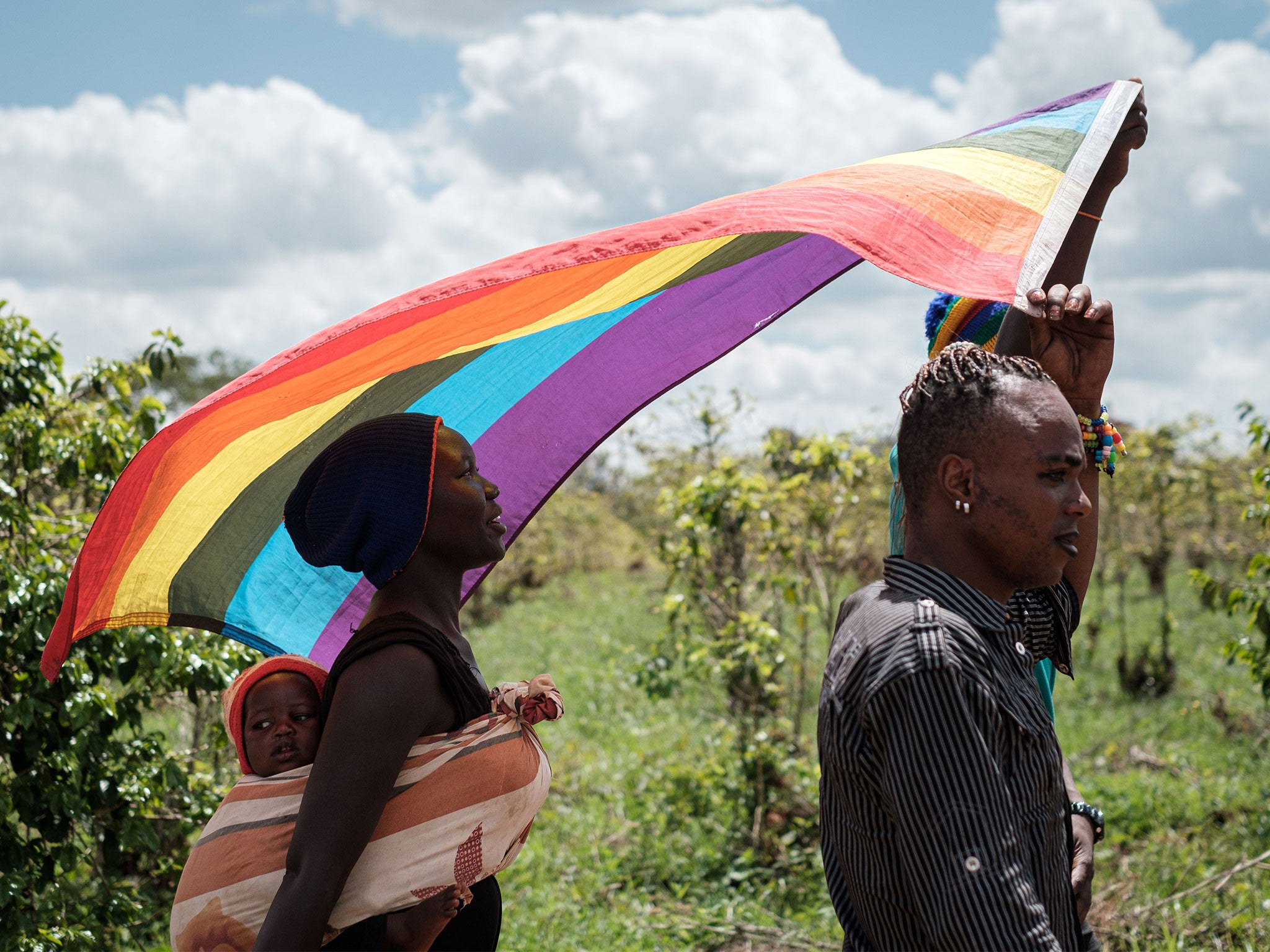LGBT+ refugees more likely to be granted asylum if they act up to 'flamboyant' stereotype, study finds
'Frequent visits to gay discos and parties, public display of love and affection, wearing rainbow-coded clothing' all appear to help with application, research suggests

Your support helps us to tell the story
From reproductive rights to climate change to Big Tech, The Independent is on the ground when the story is developing. Whether it's investigating the financials of Elon Musk's pro-Trump PAC or producing our latest documentary, 'The A Word', which shines a light on the American women fighting for reproductive rights, we know how important it is to parse out the facts from the messaging.
At such a critical moment in US history, we need reporters on the ground. Your donation allows us to keep sending journalists to speak to both sides of the story.
The Independent is trusted by Americans across the entire political spectrum. And unlike many other quality news outlets, we choose not to lock Americans out of our reporting and analysis with paywalls. We believe quality journalism should be available to everyone, paid for by those who can afford it.
Your support makes all the difference.LGBT+ refugees are more likely to have their asylum applications accepted if they act up to “flamboyant” stereotypes, according to a new study.
Gay migrants also stand a better chance if they can prove they attended Pride marches, visited gay bars or were involved in activism in their country of origin, the research suggested.
The anthropologist-led study interviewed LGBT+ asylum seekers from Tunisia, Syria, Lebanon, Iran and Pakistan applying for asylum in Germany.
They enjoyed the greatest chance of success when their stories “aligned with Western notions of queer/gay lifestyles, i.e. frequent visits to gay discos and parties, public display of love and affection, wearing rainbow-coded clothing etc”, said Dr Mengia Tschalaer, of the University of Bristol, who carried out the research, which was published in the journal Ethnic and Racial Studies.
It comes after an Iraqi man’s asylum application was rejected when authorities in Austria said they did not believe he was gay because he was “too girlish”.
The unnamed 27-year-old was reportedly told by officials his behaviour was “not authentic” in a high-profile asylum case last year.
The decision was the second time Austrian authorities had refused an asylum case on the grounds they did not believe the applicant was gay.
The treatment of LGBT+ asylum seekers in Britain has also come under the spotlight amid reports of vulnerable applicants struggling to provide adequate proof of their sexuality.
The proportion of asylum claims from members of the LGBT+ community that have been rejected by the Home Office has surged in recent years, government data released last year showed.
In total, 78 per cent of asylum claims that included a reference to sexual orientation were refused last year; 1,464 people – up from 964 rejected claims in 2015.
Dr Tschalaer’s study found people who were more open about their sexuality and gender identity in their country of origin as well as the country of arrival were much more likely to be granted asylum, in part because they were more likely to receive support for the preparation of their asylum interview.
Her research suggested those who felt unable to be open about their sexuality prior to leaving their home country were at a disadvantage when applying for asylum.
"LGBTQI+ asylum seekers who felt forced to hide their sexuality and/or gender identity, and who felt uncomfortable talking about it were usually rejected, as were those who were married or had children in their countries of origin,” she said.
“This was either because they were not recognised or believed as being LGBTQI+, or because they were told to hide in their country of origin since they had not come out yet.”
Leila Zadeh, director of the UK Lesbian & Gay Immigration Group (UKLGIG), urged European governments to "stop basing decisions on whether to grant asylum to LGBTQI+ people based on a person’s ability to articulate a "coming out story’ in line with Western stereotypes”.
She told The Independent: "UKLGIG research has similarly found that the Home Office sometimes refuses refugee status to LGBTQI+ people who find it hard to speak about their sexual orientation. They told one person who they refused that their story was 'wholly lacking in compelling detail or any emotive terminology'.
"This fails to recognise that in many parts of the world it is taboo to talk about emotions and relationships. People who do not conform to a society's gender norms may never have spoken about their sexuality or gender identity at all. European governments should stop basing decisions on whether to grant asylum to LGBTQI+ people based on a person’s ability to articulate a ‘coming out story’ in line with Western stereotypes”.